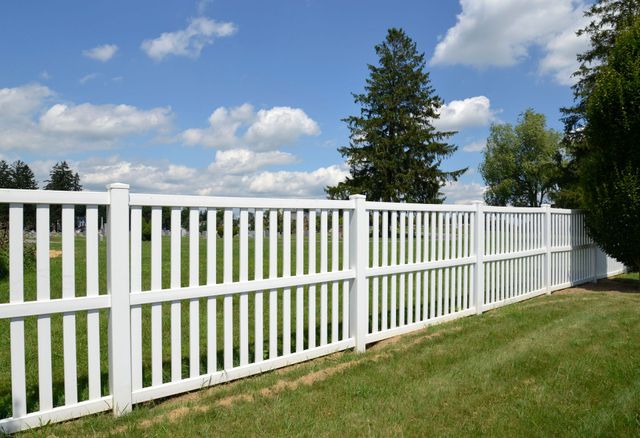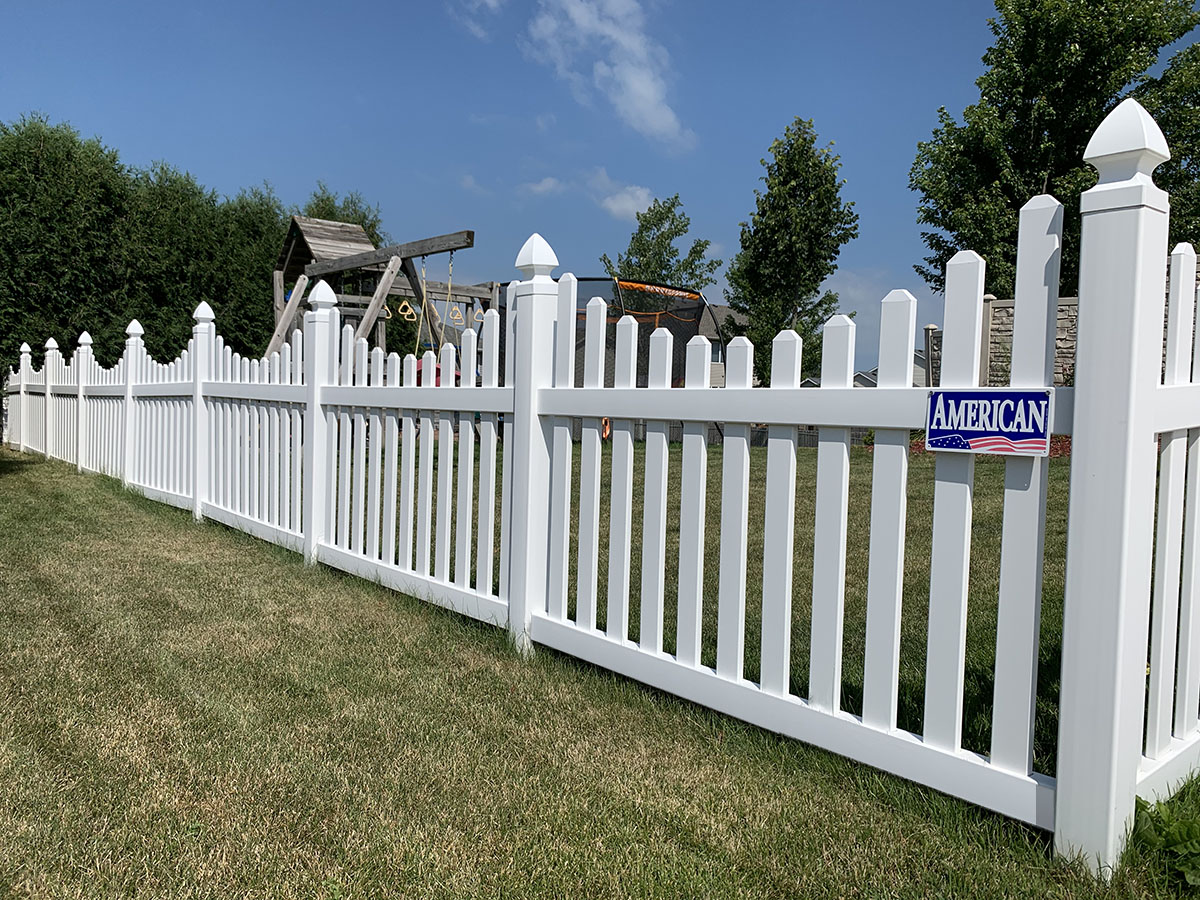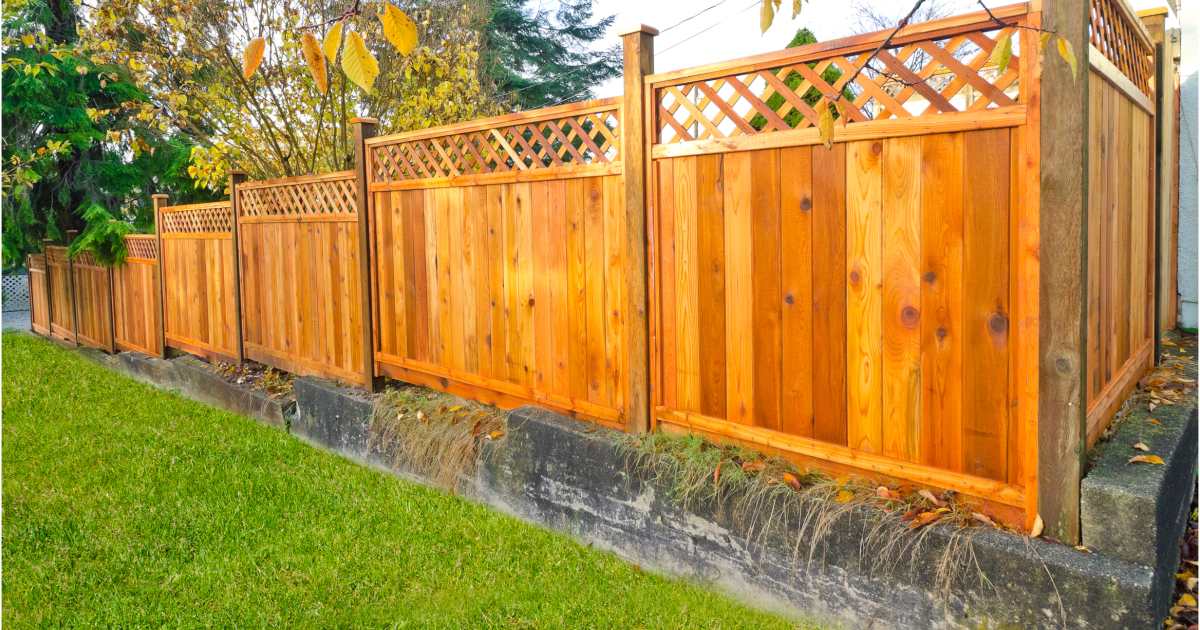All Categories
Featured
If you're considering installing a fencing around your residential property, understanding the authorization needs in your location is vital. In this guide, we'll damage down the various permits you may require to install a fence and how to guarantee your task remains compliant with neighborhood legislations.
Why Are Allows Necessary for Fence Installment? Authorizations are required to guarantee that the fencing you build comply with regional building regulations, zoning regulations, and safety standards. These permits are in location to secure your home, the buildings around you, and the atmosphere. They make sure that the fence will not block utilities, website traffic circulation, or create threats for pedestrians. Furthermore, they help preserve the structural and aesthetic honesty of your neighborhood.
![]()
Sorts Of Permits You Might Demand. Structure Authorization. A building authorization is the most typical requirement for setting up a fence. If your fencing exceeds a specific height (usually around 6 feet), you might require to acquire a structure permit.
Zoning Authorization. A zoning permit ensures that your fencing conforms with these regulations. Your fencing could need to be set back a certain distance from pathways or residential or commercial property lines.
Homeowners Organization (HOA) Approval. If your residential or commercial property becomes part of a homeowners association, you might need approval before setting up a fence. HOAs often have strict rules regarding the type, style, and products made use of for fencings to preserve an uniform appearance throughout the neighborhood. The HOA may need you to send comprehensive plans or demand approval prior to setup. See to it you adhere to these guidelines to stay clear of prospective fines or fines.
Specialty Permits. In many cases, you may require specialized allows based upon the location of your building or the nature of your fencing. For instance, if your residential or commercial property remains in a flooding area, you may require additional permits to make sure that your fencing does not obstruct drain or water flow. Likewise, if you prepare to develop a fence near an environmentally protected location, you may need a special license to comply with ecological policies.
![]()
Utility Easements and Utility Firm Approvals. Some homes have energy easements, which are areas marked for utility lines, pipelines, or cables. Prior to installing a fence, you need to check if your home has an easement. Constructing a fence within an easement can hinder energy upkeep or damages underground lines. You may require authorization from the energy business or regional authorities before waging the installment.
Exactly How to Identify Which Allows You Required. Contact Local Authorities. The primary step in determining the authorizations needed is to contact your local building department or zoning office. They can offer particular information regarding what permits are necessary for your area. Lots of cities have on the internet sources or sites where you can check the requirements and even use for a license online.
Speak With a Professional Fence Specialist. A regional fencing service provider is frequently acquainted with the authorization procedure and regional regulations. They can assist you browse the needs and guarantee that your job is compliant. Several professionals likewise deal with the permit application process on your part, saving you time and effort.
Evaluation Your Neighborhood's HOA Guidelines. Make sure to examine their standards before applying for any type of permits if you live in a community governed by an HOA. The HOA might require specific designs, products, or height limitations for fences within the area. Submit your strategies to them for authorization before proceeding.
![]()
Repercussions of Not Acquiring an Authorization. Setting up a fencing without the required permits can lead to significant consequences. Possible buyers might be reluctant to buy a residential or commercial property with an unpermitted fencing, especially if it's in violation of zoning legislations.
Conclusion. Before installing a fence on your property, make certain you understand the local laws and get any type of necessary permits. Building licenses, zoning licenses, HOA authorizations, and specialized allows all play a critical function in making certain that your fencing is secure, legal, and compliant.
Why Are Allows Necessary for Fence Installment? Authorizations are required to guarantee that the fencing you build comply with regional building regulations, zoning regulations, and safety standards. These permits are in location to secure your home, the buildings around you, and the atmosphere. They make sure that the fence will not block utilities, website traffic circulation, or create threats for pedestrians. Furthermore, they help preserve the structural and aesthetic honesty of your neighborhood.

Sorts Of Permits You Might Demand. Structure Authorization. A building authorization is the most typical requirement for setting up a fence. If your fencing exceeds a specific height (usually around 6 feet), you might require to acquire a structure permit.
Zoning Authorization. A zoning permit ensures that your fencing conforms with these regulations. Your fencing could need to be set back a certain distance from pathways or residential or commercial property lines.
Homeowners Organization (HOA) Approval. If your residential or commercial property becomes part of a homeowners association, you might need approval before setting up a fence. HOAs often have strict rules regarding the type, style, and products made use of for fencings to preserve an uniform appearance throughout the neighborhood. The HOA may need you to send comprehensive plans or demand approval prior to setup. See to it you adhere to these guidelines to stay clear of prospective fines or fines.
Specialty Permits. In many cases, you may require specialized allows based upon the location of your building or the nature of your fencing. For instance, if your residential or commercial property remains in a flooding area, you may require additional permits to make sure that your fencing does not obstruct drain or water flow. Likewise, if you prepare to develop a fence near an environmentally protected location, you may need a special license to comply with ecological policies.

Utility Easements and Utility Firm Approvals. Some homes have energy easements, which are areas marked for utility lines, pipelines, or cables. Prior to installing a fence, you need to check if your home has an easement. Constructing a fence within an easement can hinder energy upkeep or damages underground lines. You may require authorization from the energy business or regional authorities before waging the installment.
Exactly How to Identify Which Allows You Required. Contact Local Authorities. The primary step in determining the authorizations needed is to contact your local building department or zoning office. They can offer particular information regarding what permits are necessary for your area. Lots of cities have on the internet sources or sites where you can check the requirements and even use for a license online.
Speak With a Professional Fence Specialist. A regional fencing service provider is frequently acquainted with the authorization procedure and regional regulations. They can assist you browse the needs and guarantee that your job is compliant. Several professionals likewise deal with the permit application process on your part, saving you time and effort.
Evaluation Your Neighborhood's HOA Guidelines. Make sure to examine their standards before applying for any type of permits if you live in a community governed by an HOA. The HOA might require specific designs, products, or height limitations for fences within the area. Submit your strategies to them for authorization before proceeding.

Repercussions of Not Acquiring an Authorization. Setting up a fencing without the required permits can lead to significant consequences. Possible buyers might be reluctant to buy a residential or commercial property with an unpermitted fencing, especially if it's in violation of zoning legislations.
Conclusion. Before installing a fence on your property, make certain you understand the local laws and get any type of necessary permits. Building licenses, zoning licenses, HOA authorizations, and specialized allows all play a critical function in making certain that your fencing is secure, legal, and compliant.
Latest Posts
Discover Budget-Friendly Auto Repairs with Montclare’s Exclusive Service Specials
Published May 30, 25
1 min read
Learn About Brake Repair & More: Comprehensive Auto Care Solutions from Montclare Auto Repair
Published May 22, 25
1 min read
Why Routine Vehicle Maintenance at Montclare Auto Repair Saves You Money
Published May 22, 25
1 min read
More
Latest Posts
Discover Budget-Friendly Auto Repairs with Montclare’s Exclusive Service Specials
Published May 30, 25
1 min read
Learn About Brake Repair & More: Comprehensive Auto Care Solutions from Montclare Auto Repair
Published May 22, 25
1 min read
Why Routine Vehicle Maintenance at Montclare Auto Repair Saves You Money
Published May 22, 25
1 min read